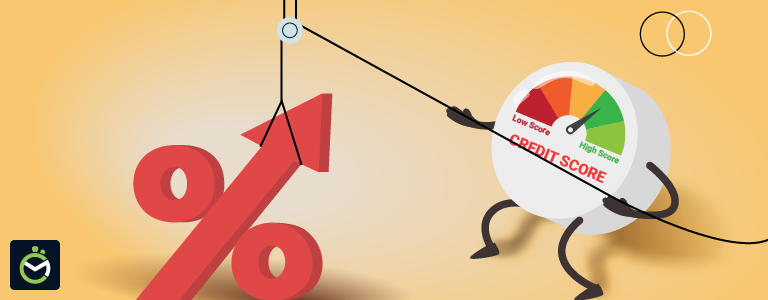Personal loans can help improve your credit score and eventually your financial health. A personal loan can provide access to funds that can be used to finance major expenses or consolidate high-interest debt. Making timely payments on the loan can help improve your credit score, while lower interest rates can reduce the overall cost of borrowing. However, taking on additional debt can also be a burden on your financial health, especially if you are already struggling to manage your current debt load. High-interest rates, fees, and penalties can also increase the overall cost of the loan and make it more difficult to repay. Let us understand how a personal loan can help you achieve your financial goals.
Impact of Personal Loans on the Credit Score
- Payment History – Making timely payments on your personal loan can improve your payment history, which accounts for 35% of your credit score. A consistent payment history can help boost your credit score and demonstrate your creditworthiness to lenders.
- Credit Mix – Personal loans can add diversity to your credit mix, which accounts for 10% of your credit score. Having a mix of installment loans (like personal loans) and revolving credit (like credit cards) can show that you can manage different types of credit responsibly.
- Credit Utilization – Personal loans do not affect your credit utilization rate, which is the amount of credit you use compared to your credit limit. This means that taking out a personal loan can help lower your credit utilization rate and improve your credit score.
Things to Check Before Taking a Personal Loan to Improve the Credit Score
- Check Your Credit Report – Before applying for a personal loan, check your credit report to ensure that all the information is accurate. If you notice any errors or discrepancies, dispute them with the credit bureau to have them corrected.
- Shop Around – Compare interest rates and terms from multiple lenders to find the best loan offer. Choosing a loan that offers a reasonable interest rate, fees, and manageable repayment terms is important.
- Consider Loan Amount and Term – Only borrow what you need and can afford to repay. Choose a loan term that allows you to make timely payments while keeping the loan amount manageable.
- Make Timely Payments – Making timely payments on your personal loan is crucial to improving your credit score. Late or missed payments can damage your credit score and make it more challenging to obtain future loans.
- Avoid Multiple Loan Applications – Applying for multiple personal loans within a short period can negatively impact your credit score. It’s best to shop around for loan offers without submitting multiple loan applications.
- Monitor Your Credit Score – Keep an eye on your credit score and monitor any changes as you make payments on your personal loan. You can use a credit monitoring service to stay on top of your credit score and receive alerts for any changes.
When Should You Apply for a Personal Loan
You should consider applying for a personal loan when you have a planned expense that you can’t pay for with cash or savings, or when you need to consolidate high-interest debt. Here are some specific situations when applying for a personal loan may make sense –
- Home Improvements – A personal loan can be a good option to finance the project if you plan to make home improvements or renovations. Personal loans typically have lower interest rates than credit cards, making them a more affordable option for larger expenses.
- Medical Expenses – If you have unexpected medical expenses that you can’t pay for out of pocket, a personal loan can be a way to cover the cost. This can be especially important if the expense is urgent and requires immediate attention.
- Debt Consolidation – If you have high-interest debt, such as credit card balances, a personal loan can be used to consolidate that debt into one manageable payment with a lower interest rate. This can help you pay off your debt faster and save money on interest charges.
- Major Purchases – A personal loan can be used to finance the expense if you need to make a major purchase, such as a car or appliance. This can be a good option if you don’t have enough cash on hand or if the item you are purchasing requires a significant investment.
- Emergency Expenses – If you experience an unexpected expense, such as a car repair or home repair, a personal loan can be a way to cover the cost without tapping into your emergency fund or using high-interest credit cards.
Disadvantages of Using a Personal Loan for Bad Credit
- Credit Inquiries – Applying for a personal loan results in a hard inquiry on your credit report, which can temporarily lower your credit score by a few points. Applying for multiple loans within a short period can have a more significant impact on your credit score.
- Late Payments – Late or missed payments on your personal loan can significantly damage your credit score. Payment history accounts for the largest portion of your credit score, so it’s essential to make timely payments to maintain a good credit score.
- Debt-to-Income Ratio – Personal loans can increase your debt-to-income ratio, which is the amount of debt you have compared to your income. A high debt-to-income ratio can negatively impact your credit score and make it more challenging to obtain future loans.
Conclusion
Overall, taking out a personal loan to improve your credit score can be a smart financial decision if you manage the loan responsibly and make timely payments. It can help you boost your credit score, potentially qualify for lower interest rates on future loans, and consolidate high-interest debt into a more manageable loan.

